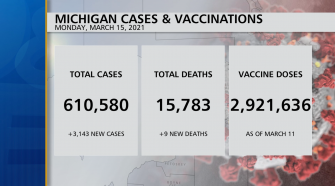Integrating mental health care into primary care practices is key to connecting patients to the care they may otherwise have difficulty accessing due to provider shortages or the stigma that so often discourages patients from seeking help for their behavioral health conditions.
Appropriately using virtual care and other digital tools that have become commonplace during the COVID-19 pandemic offers an opportunity for physicians to enhance behavioral health integration (BHI) and enable practices to adopt BHI faster than they would be able to without it.
Supporting telehealth is an essential component of the AMA Recovery Plan for America’s Physicians. You took care of the nation. It’s time for the nation to take care of you. It’s time to rebuild. And the AMA is ready.
Telehealth is critical to the future of health care, which is why the AMA continues to lead the charge to aggressively expand telehealth policy, research and resources to ensure physician practice sustainability and fair payment.
“This is the No. 1 issue that we need to tackle as an American health care system because of the great prevalence of mental health problems, the impact that mental health problems have on both quality and cost of care in the U.S. and the lack of access to high quality affordable mental health care across the country,” Matthew Press, MD, physician executive of Penn Primary Care said during an AMA webinar on exploring how to accelerate BHI through telehealth.
A call to action published in Health Affairs from the AMA and the seven other leading physician organizations that are part of the BHI Collaborative urges a unified and collective effort by stakeholders across the health care system to support equitable, whole-person care for patients and their families.
“Even with a clear recognition that our primary care systems must urgently embrace a paradigm shift to stem the growing behavioral health crisis, there remain significant challenges in building clinical pathways that provide whole person care,” said AMA Immediate Past President Gerald E. Harmon, MD, co-author of the call to action. “These challenges cannot be overcome by physicians alone, and we are calling on payers and policymakers, among other industry stakeholders, to rally around a set of key solutions in partnership with physicians.”
The call to action urges payers and policymakers to join forces with physicians and “act now to implement solutions and ensure primary care physicians and their care teams have the support to provide equitable, whole-person care for their patients and families.”
The call to action says that employers, health plans and other payers should:
- Expand coverage and fair payment for all stakeholders utilizing BHI models.
- Evaluate how and when to apply cost-sharing for integrated services, whether delivered in person or via telehealth.
- Assist primary care practices by offering technical support, training and regional sharing of resources.
- Minimize or eliminate utilization management practices for BHI services.
- Launch whole-person, employer-based behavioral health programs with intentional culture-focused work to destigmatize behavioral health.
Meanwhile, federal and state policymakers should:
- Provide long-term sustainable funding opportunities for training and education on implementing BHI services.
- Raise payment levels for BHI services for all stakeholders in federal and state coverage programs.
- Work with health plans and coverage programs to limit utilization-management review practices, enforce behavioral health parity laws, and strengthen network adequacy regulations.
- Increase federal funding with the aim of growing the behavioral health workforce especially for those who practice in underserved areas.
About 80 randomized, controlled trials have shown that integrating mental health care leads to improved mental health for patients, improved comorbidities and a lower cost of care, Dr. Press said in the AMA webinar. The webinar is part of the AMA STEPS Forward™ Innovation Academy, which enables physicians to learn from peers and experts and discover ways to implement time-saving practice innovation strategies.
Digital opportunities, limits
Elaborating on a report that the AMA created with Manatt Health and released earlier this year on accelerating BHI through digitally enabled care, Christopher Botts, the AMA’s Care Delivery and Payment Manager, professional satisfaction and practice sustainability, discussed the opportunities and limitations of using technology to support BHI.
On the upside, BHI limits the fragmentation of care and generates value for patients and providers. However, some limitations include that using technology within BHI may not be clinically appropriate for everyone. Jared Augenstein, Director at Manatt Health, discussed what key groups can do to help expand BHI, particularly when it comes to technology.
For example:
- Physician practices and health systems can increase BHI training for primary care specialists and behavioral health providers by incorporating digitally enabled BHI into standard curricula.
- Health plans and coverage programs can expand coverage and fair payment and implement payment parity for BHI services delivered via video or audio-only telehealth modalities.
- Federal and state policymakers can help primary care specialists overcome financial barriers to adopting BHI by providing long-term sustainable funding opportunities and fair payment rates with a margin for providers delivering BHI services in federal and state coverage programs.
- Federal lawmakers can pass legislation to remove originating site and geographic restrictions for all telehealth services in Medicare that limit access to care.
The AMA established the BHI Collaborative with seven other leading physician organizations to catalyze effective and sustainable integration of behavioral and mental health care into physician practices. The Collaborative is launching a new, free initiative this fall—The BHI Immersion Program—that gives selected physician practices the chance to take part in a yearlong, primarily virtual curriculum designed and taught by industry experts on how to effectively implement behavioral health integration.
Learn more and apply for the BHI Immersion Program by Aug. 5.

















